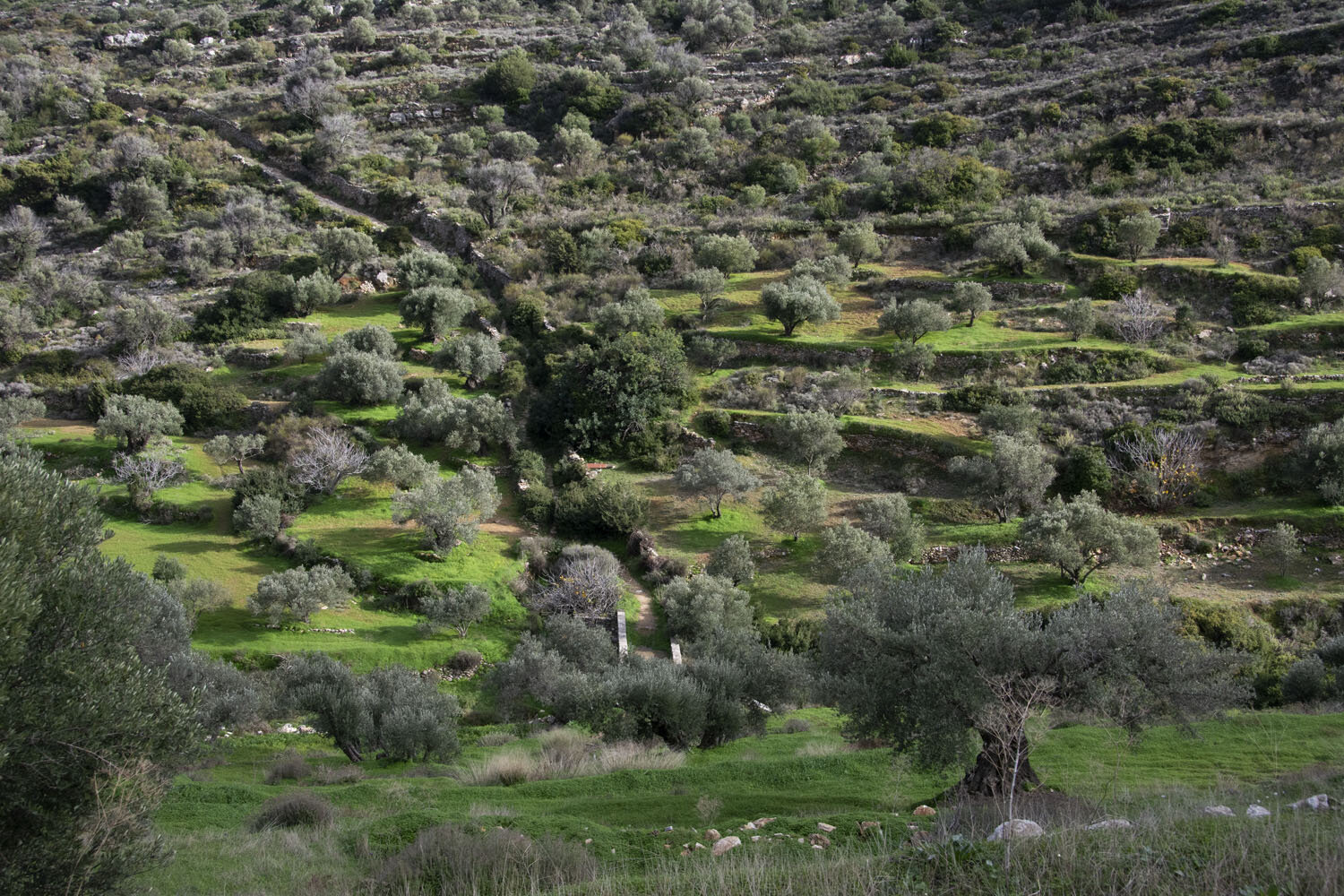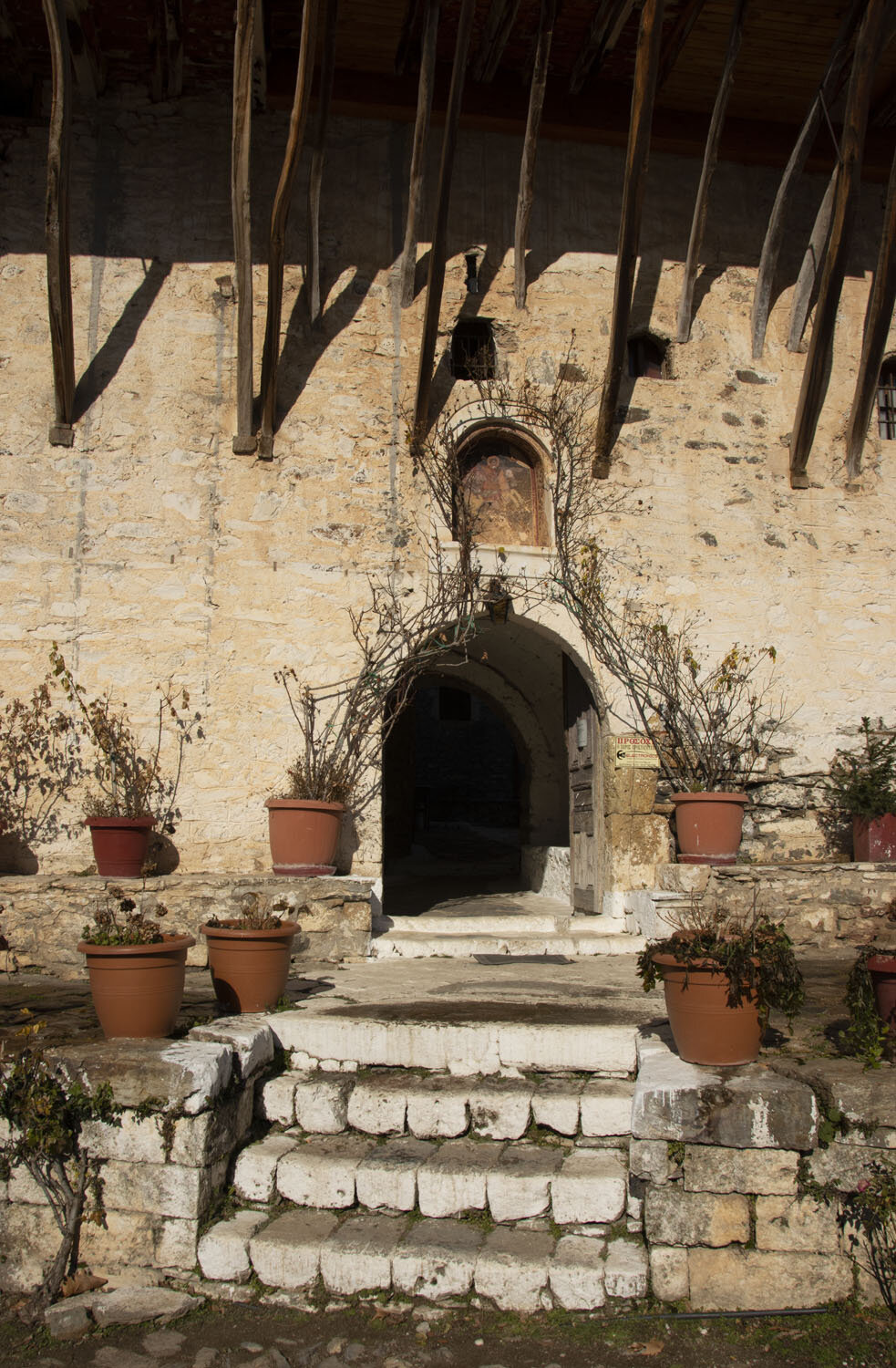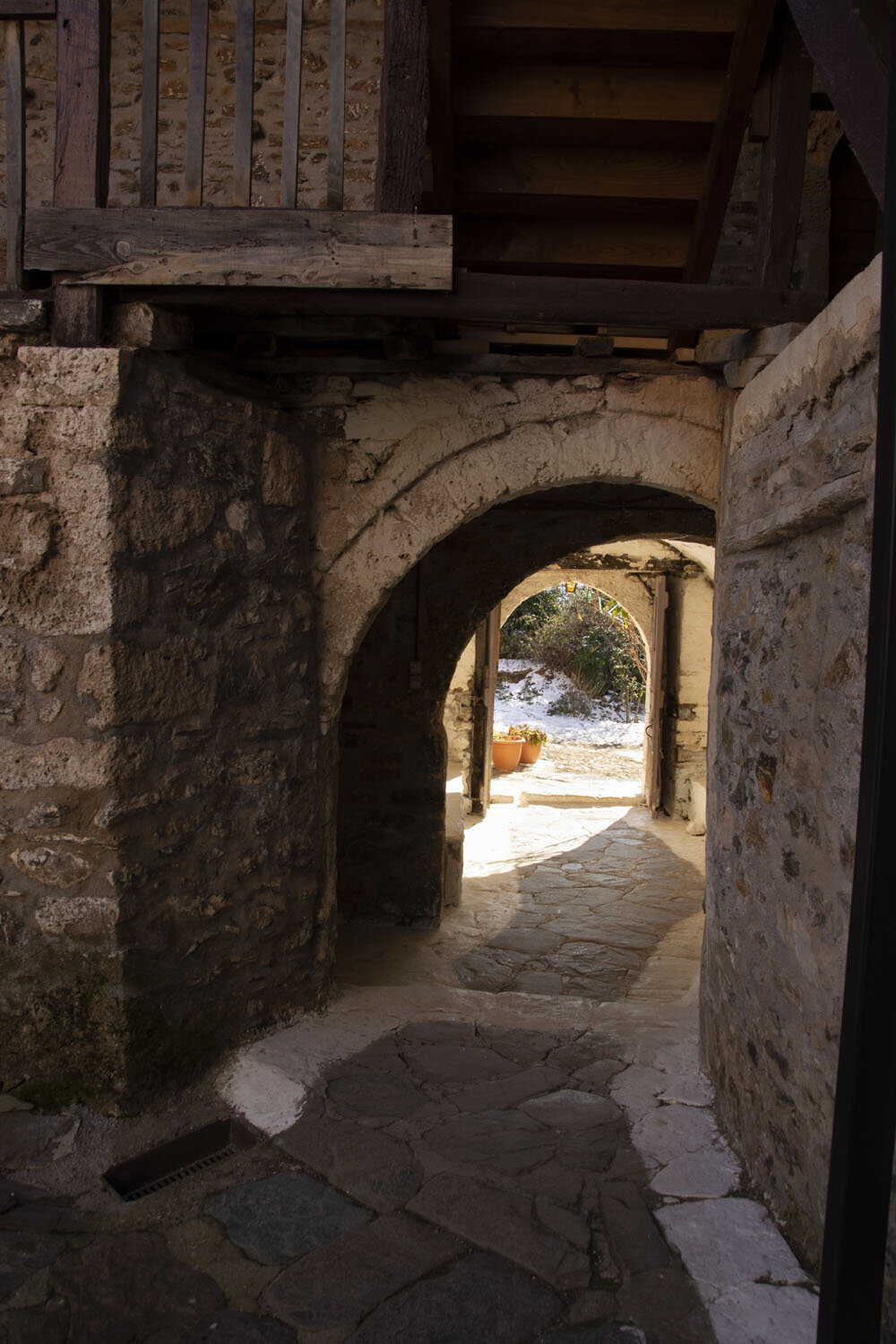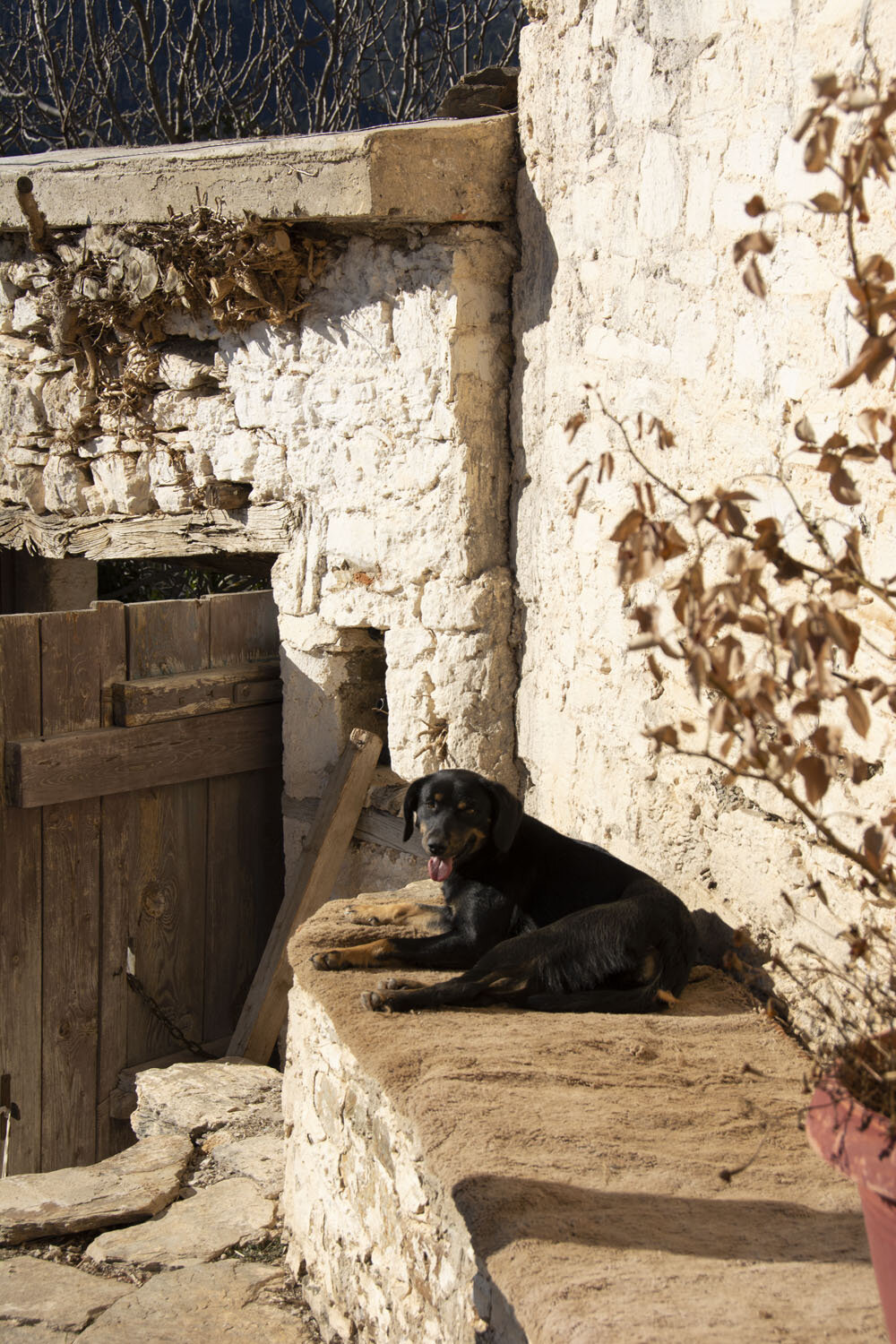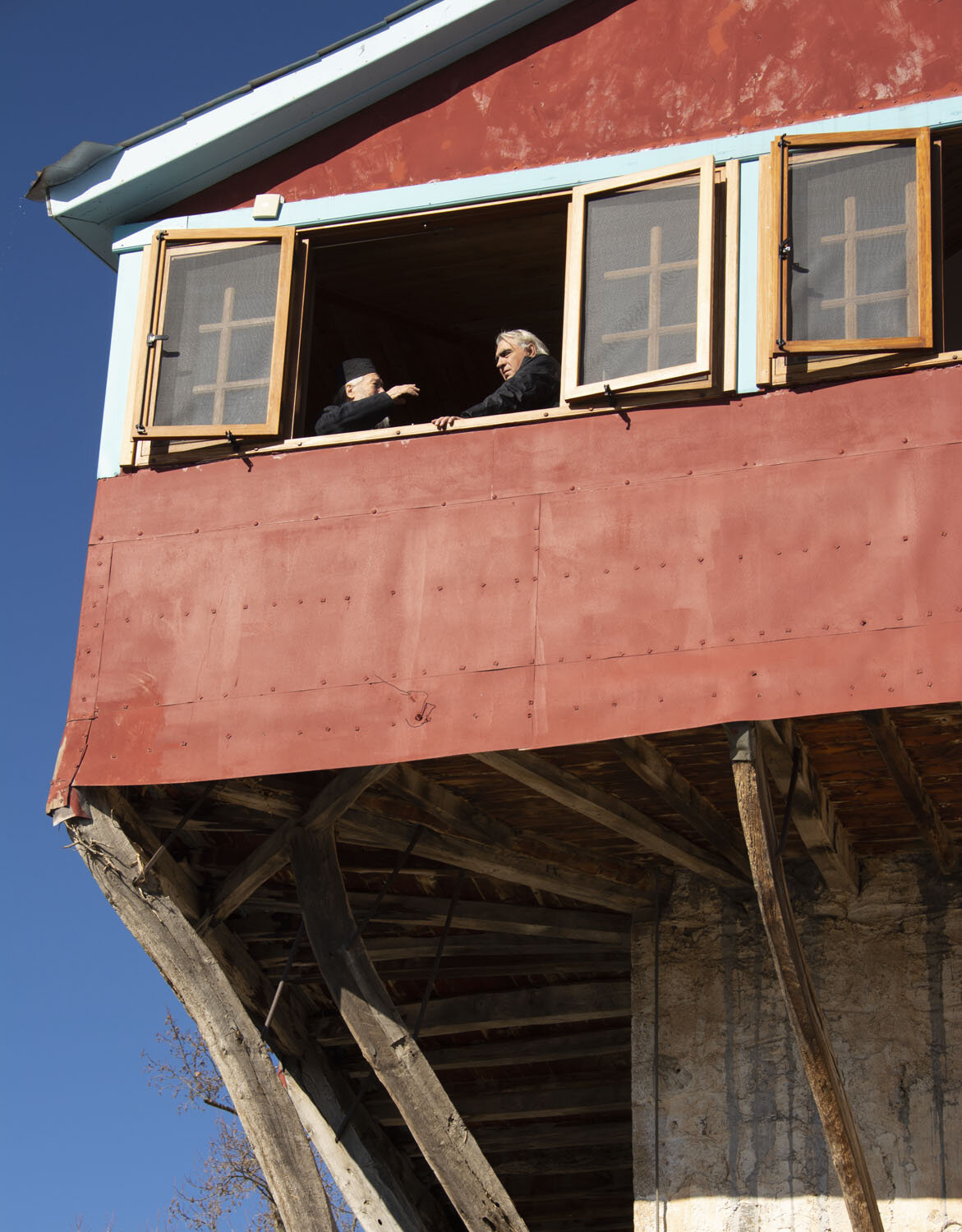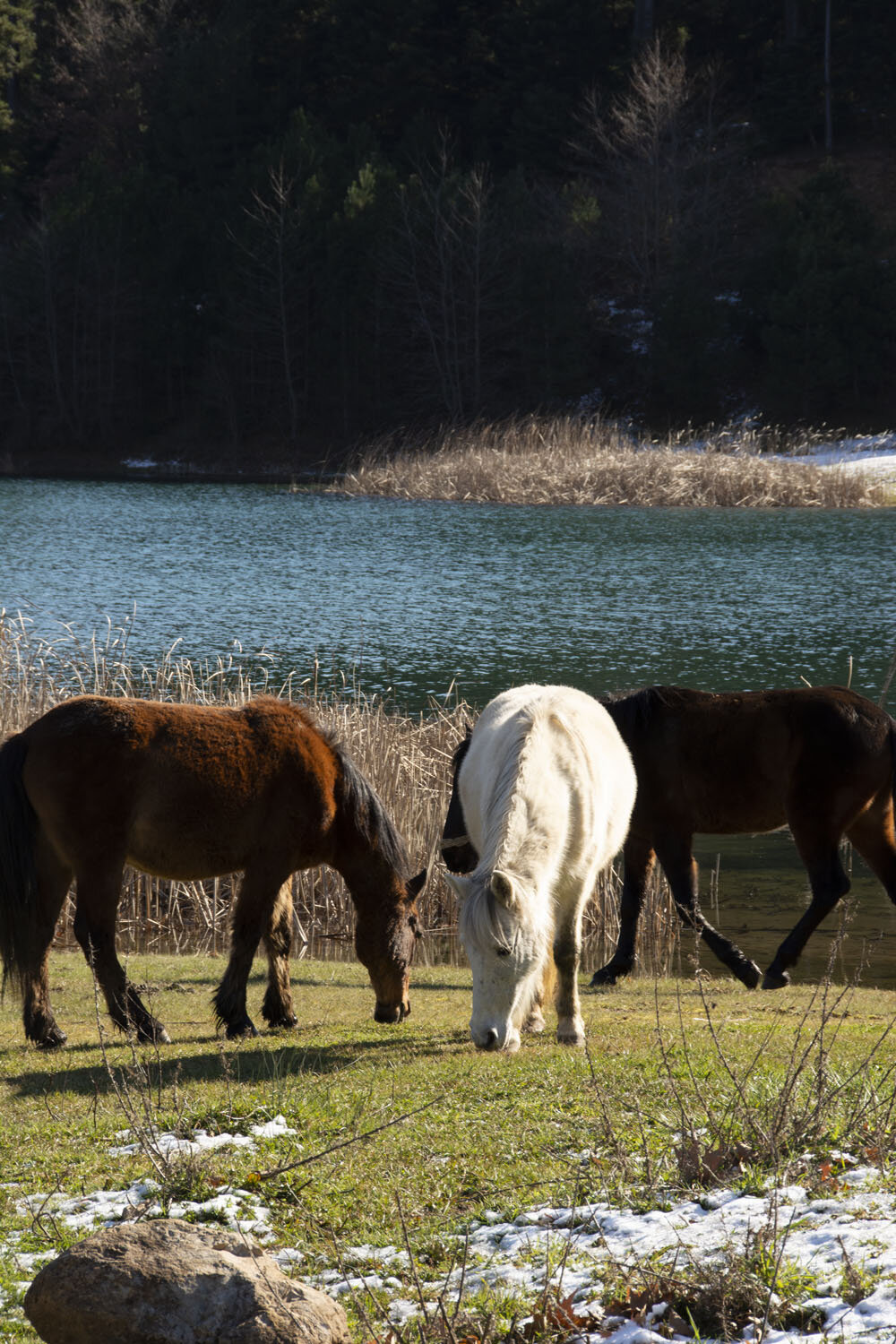Every time I tell people I’m going to Greece for Christmas the response is something along the lines of “so jealous!” However, had they visited Paros in December they would know it means gale force winds, (definitely) no swimming, rain and spots of hail. A lot of this really:
But every so often you get a good day and it’s glorious. In fact we got two of these while on Paros. There are few people out and about, and the island is covered in lush vegetation. On the first of these we headed to the Mycenaean Acropolis for a steep scramble. This was higher up than I remembered.
There isn’t too much up there in terms of ruins, but there is a pretty fantastic view.
Naousa Bay
What people will be shocked by when visiting in the off-season though will be how green everything gets. The price you pay for this of course is the large amount of rain, although everyone swore to us that it had been perfect exactly up until the day we arrived.
Mycenaean Acropolis Paros
Having taken in the views, we had to head back somewhat fast that day as the Metaxa household needed to be prepared for its annual Christmas extravaganza. This consists of tree decorating, spiked cider, lots of direction from my parents on where the ornaments should go but no action on their part and Christmas music.
The second of the two days that you could stand outside without the wind sweeping you into the Aegean came a little after Christmas and it produced a truly stunning wintery Parian landscape. We decided to go to the old Byzantine Road that connects two inland villages, Lefkes and Prodromos. Of course our true motivation was the (ultra) traditional Greek restaurant of Tsitsanis, but alas it was closed like everything else. I was told generally that everyone had a great summer season so people said “eh why open in the winter, we made enough money this year.” It’s an interesting cultural difference with the US, but that’s for another time.
Byzantine Road
The road is said to be about 1,000 years old and was part of a larger network connecting the Parian villages. Walking on it you’ll note that this wasn’t designed for wheels, wooden or otherwise, but probably donkeys. Parts of it are paved with Parian marble, which is plentiful on the island:
Textures, so many textures
The trail from one end to the other is about an hour and a half, but since there was no one there to pick us up on the other side we had to double back and go head to Prodromos. As the clouds swirled above us the landscape kept changing with the light, so even though we were walking through the same area it wasn’t repetitive.
At some point, and with a lot of patience from my wife Julia as I kept waiting for the clouds to move so I could take a picture, we made it back to the village. Approaching it with a car won’t make you think much of it with its paved parking lot at the front, but coming at it from the Byzantine Road puts you right in the traditional, whitewashed center of the town…and it’s full of cats!
On the way back we decided to make a quick pit-stop at one of my favorite parts of the island, Afkoulaki, which is one of the few places you’ll find running water in the winter and spring months. While there wasn’t an incredible amount flowing through yet, the landscape didn’t disappoint:
Fishing nets
Unlike other winters, Julia and I decided that we were going to explore one more part of Greece before heading back to work. Specifically we planned to head to the Peloponnese, about 2 hours south of Athens, to see some snow and hang out by a fireplace. We knew we were going to face an inquisition by my parents, so we went in determined to let the “it’s going to be cold,” “but we have a fireplace here,” “you’re going to die driving up the mountains" bounce off us. We persevered and found the most amazing snowy landscape that was especially enjoyable from our balcony at sunrise:
On the full day we had there we went down to Lake Doxa, where the snow had melted and we’d heard was beautiful. Our main destination was the “new” Monastery of Saint George.
The place had a distinct Game of Thrones feel to it, made even more so by the monks clad in all black. The monastery was built in the 18th century when the existing, older structure became unlivable due to the rising water levels of Lake Doxa. It’s still called the new monastery just in case anyone confuses it with the old one. Naming conventions aside, it was beautiful inside and out. While there we were offered some “spoon” sweet made from local rose petals, which can be a lot for people that aren’t used to strong floral flavors (I finished Julia’s).
Driving back down toward the water in our tiny European rental and trying not to slide off the road from the ice, we were suddenly surrounded by horses! This pretty much being a photographer’s dream, I couldn’t help myself and jumped out to catch them grazing on the shore.
With that image in mind, we bade Greece farewell and till the next time (which will only be 6 months from now).
-Stefanos












